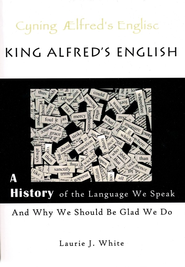Description | Exposition | Narration | Persuasion | All
 Want to inspire your teens to write? Could you use some engaging writing prompts that won’t put your teens to sleep? You’ve come to the right place!
Want to inspire your teens to write? Could you use some engaging writing prompts that won’t put your teens to sleep? You’ve come to the right place!
You’ll find prompts for opinions, descriptions, story writing, current events, prompts that are really tutorials in disguise, and much more. Complete instructions are included with each prompt.
Looking for tutorials on essay writing, proofreading, and so on? Interested in writing prompt bundles that span many grades? Click here.
Find prompts for your middle school students here.
Thanks for visiting the High School Prompts page. If you have a writing prompt you would like to submit, please contact Sharon Watson.
“You can’t wait for inspiration.
You have to go after it with a club.”
— JACK LONDON
Write a Story from an Animal’s Perspective
How do you write a story about Alaska before people arrived? You make animals the main characters, which is exactly what James A. Michener does in Alaska.
Michener creates Matriarch, a mammoth that is old enough to be the grandmother of many other mammoths. Through her eyes, we see the landscape and experience the early troubles of the area now known as Alaska.
An Alaskan Matriarch
Here’s a passage from Alaska in which Matriarch first encounters . . . well, I think you’ll figure out what’s going on here: (more…)
Celebrate Hispanic Heritage Month with this Family Writing Prompt
Let’s celebrate Hispanic Heritage Month by highlighting a short story by Colombian-born Gabriel García Márquez.
Many stories can be put into one of two categories when talking about how the ball gets rolling: (more…)
What Will Your Character Find in a Secret Room?
Secret rooms in movies and books promise excitement. How does one find the room? How does one enter? What could be hidden in this mysterious vault?
The Scarlet Letter by Nathaniel Hawthorne is introduced to readers as being the result of an amazing find, a secret cache tucked away in the dusty, forgotten second floor of the custom house where Hawthorne worked for a while.
Here’s how he creates excitement for his narrator’s find and, therefore, the story: (more…)
Carnivore, Omnivore, Vegan, Vegetarian—What Do You Eat?
“We don’t need to eat anyone who would run, swim, or fly away if he could.”
The topic of the food we eat can be very controversial, and actor James Cromwell’s quote puts us right in the middle of it. (more…)
Proofreading Marks and How to Use Them
 Do your students waste endless time erasing whole sentences? Do they become discouraged when they look at their rough drafts filled with arrows, illegible notes in the margins, and ugly lines of scratched-out writing?
Do your students waste endless time erasing whole sentences? Do they become discouraged when they look at their rough drafts filled with arrows, illegible notes in the margins, and ugly lines of scratched-out writing?
Let’s save them the pain by teaching them these handy, easy-to-use proofreading marks.
I’ve watched students in my writing classes scratch out whole sentences and rewrite them. They draw lines through words. They burn up their papers and crumble their erasers just to change something.
This is totally unnecessary.
There’s an easier—and quicker—way to proofread that doesn’t require a lot of rewriting, which should be good news to our students.
But first, the other grammar tutorials
This is the last in a series of tutorials on grammar. In this one, you and your students will learn how to use these helpful proofreading marks.
If you’re dying to know what the other grammar tutorials are about, click here for one on punctuation in dialog. (Tarzan and Jane help out on that one.) Click here if you yearn to know how to handle commas in compound sentences with coordinating conjunctions.
And click here for the hard-hitting exposé on where to put the comma, period, colon, or semicolon when using quotation marks. Here’s a tutorial on a question I suspect you’ve heard from your students about using question marks and exclamation points with end quotation marks (you know, do they go inside or outside?).
For the tutorial revealing the crazy fact that the word “everyone” is singular, click here. And to finally put to rest your students’ confusion about it’s/its, you’re/your, and others of that ilk, click here.
Proofreading Marks
As with all the other tutorials, you get a super-duper package today: an infographic to teach the proofreading marks, an example of how to use them in a real paragraph, an exercise so students can fix someone else’s mistakes, and the answers. (more…)
Apostrophe or no Apostrophe: It’s Confusing
 This week’s grammar tutorial puts to rest some confusing words like “it’s” and “its.”
This week’s grammar tutorial puts to rest some confusing words like “it’s” and “its.”
You can use the infographic below to teach your students about some confusing word usage. After that, there’s an exercise to reinforce the material with your students, and you’ll find the answers below the exercise.
Now, on to the tutorial . . . (more…)
















